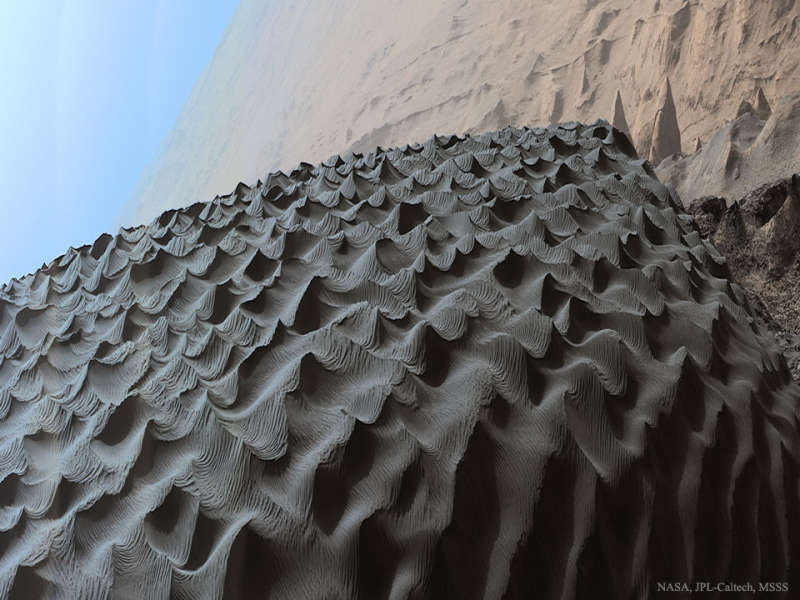Dark Dunes on Mars

Explanation:
How does wind affect sand on Mars?
To help find out if it differs significantly from Earth, the robotic
Curiosity rover on Mars was directed to investigate the dark
Namib Dune in the Bagnold Dune Field in
Gale Crater.
Namib is the first active
sand dune
investigated up close outside of planet Earth.
Wind-created ripples on Earth-bound sand dunes appear similar to
ripples on Mars, with one exception.
The larger peaks
visible on dark
Namib dune, averaging about 3 meters apart,
are of a type seen only underwater on Earth.
They appear to arise on Mars because of the way the
thin Martian wind drags dark sand particles.
The
featured
image was taken last December and is
horizontally compressed to
show context.
In the distance, a normal dusty Martian landscape slopes up
in light orange, while a
rock-strewn landscape
is visible on the far right.
Curiosity
unexpectedly went into safe mode in early July, but it was
brought out
last week and has now resumed exploring the once lake-filled interior of
Gale Crater for further signs that it was once habitable by
microbial
life.
40th Anniversary:
Viking 1 on Mars.
Authors & editors:
Robert Nemiroff
(MTU) &
Jerry Bonnell
(USRA)
NASA Web Site Statements, Warnings,
and Disclaimers
NASA Official: Jay Norris.
Specific
rights apply.
A service of:
LHEA at
NASA /
GSFC
& Michigan Tech. U.

